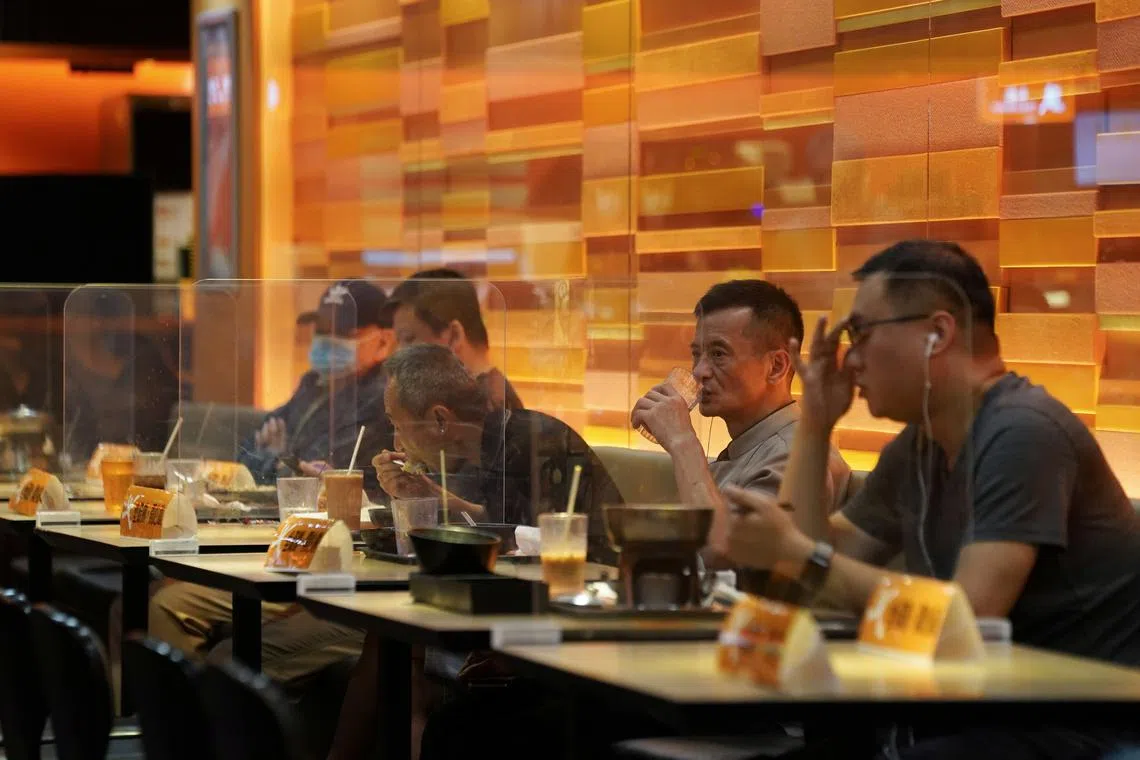Hong Kong leader says national security scrutiny of restaurants is necessary
Sign up now: Get insights on Asia's fast-moving developments

Hong Kong will make screening of catering premises for potential national security violations stricter.
PHOTO: REUTERS
Follow topic:
HONG KONG - Hong Kong will toughen screening of catering premises for potential violations of national security, which civil servants should accord top priority in deciding on licence approvals, the city’s leader John Lee said on June 10.
Critics see the move as targeting the territory’s many businesses, including cafes and restaurants, that have displayed posters, symbols or images expressing solidarity with its embattled pro-democracy movement.
Such businesses, widely called the “yellow economic circle”, have faced growing pressure from the authorities, such as tax inspectors, at a time when they are reeling from a broader economic and retail downturn.
“Food and environmental hygiene officers... should place national security as the most important consideration and make appropriate assessments,” Mr Lee told reporters.
He called the move “appropriate and necessary”, saying all civil servants were expected to rate security as the highest priority under the national security law.
The city’s food and hygiene department would follow the law in considering new licences and renewing existing ones, he added.
In recent years, the authorities in the Asian financial hub have made use of sweeping national security laws imposed after mass anti-government protests in 2019 to systematically crack down on many of its liberal pockets.
In May, the Food and Environmental Hygiene Department sent letters to thousands of food and entertainment premises, obliging them to accept new terms related to national security.
In one document seen by Reuters, the government told business owners to ensure no activity in which they were engaged or involved in “may constitute or cause the occurrence of an offence endangering national security”.
The former British colony’s crackdown on dissent, from arresting democratic activists to shuttering liberal media and civil society groups, has drawn criticism from countries such as Australia, Britain, Canada and the United States. REUTERS

